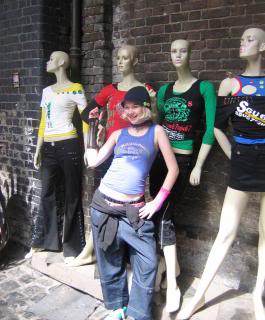
What do babies want? They want to learn. They learn by touching and tasting and watching and listening. They learn to be gentle by people being gentle with them, and showing them how to touch hair nicely, and to touch cats and dogs gently. They want to learn which foods taste good. They want to learn how to walk, but you don't need to teach them. They'll want to know how to go up and down stairs at some point. They will eventually want to know how to get things off shelves and out of boxes. They will want to see what else is in the house, and in the yard, and you can help them do that safely.
A baby doesn't want to look at and touch the very same things day after day after day any more than you would want to watch the same movie every day for a year, or sit in the same place in your house all the time. Sing different songs with him. Play different finger games. Change what he can see in the bedroom sometimes.
A rich world for a baby is similar to a rich world for anyone else. A baby is a person. A lucky baby has an adult partner who understands that.
photo by Anand Hariharan






